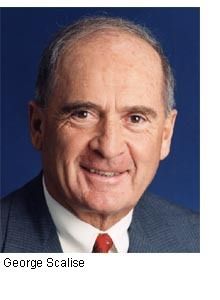US semiconductor industry blames offshoring on high taxes, lack of incentives
San Jose (CA) - According to the Semiconductor Industry Association (SIA), its not the cost of labor that drives chipmakers out of the US. Instead, the industry believes there is a lack of incentives as well as a problem of high tax rates that forces companies to take their investments elsewhere.
It was an unusually bold statement from the SIA that represents most US chipmakers with a total workforce of 226,000 people. Only 20 percent of 300 mm factories currently under construction are built in the US, two thirds are located in Asia-Pacific with the lion-share located in China. SIA president George Scalise believes a "dramatic shift in semiconductor manufacturing is now under way."
"Even an 80 percent differential in wage rates between China and the US is not a major factor in plant location decisions because semiconductor wafer fabrication facilities are capital- and technology-intensive," Scalise continued. "Government incentives such as favorable tax treatment and other assistance programs account for approximately 90 percent of the cost differential," he said.

Industry watchers considered the SIA move as another sign that the industry wants the US government to pay more attention to worldwide trends. "I applaud the SIA for doing this," said Dave Cavanaugh, director of manufacturing of market research firm Semico. While he said that cost of building the factories is of concern, be however believes that "taxes is just one of many elements involved" in this discussion.
Like Cavanaugh, also Andrea Lati, an analyst with VLSI research believes the industry to be unhappy with the US government's strategy to promote research and education. "Lots of industry leaders such as Craig Barrett are concerned about this trend. They compare US graduates to graduates from China and see the US is not doing so well." In this view, Scalise's statement could be seen as wake-up call for the US government to "give the US chipmaking industry more help."
Cavanaugh said that recent trends in US education have reached an "alarming" state, with not enough students choosing engineering but other education paths instead. "Look in the career section your newspaper. There are maybe three columns for engineers and maybe 35 columns for healthcare. This is where the jobs are and influences career decisions of today's students."
According to Cavanaugh, the US government chose "to downplay" the ongoing education problem and so far has not taken it seriously enough. "Its like we are waiting for a crisis or a real scare until we react."
Stay on the Cutting Edge
Join the experts who read Tom's Hardware for the inside track on enthusiast PC tech news — and have for over 25 years. We'll send breaking news and in-depth reviews of CPUs, GPUs, AI, maker hardware and more straight to your inbox.
US-China Economic and Security Review Commission in Palo Alto, George Scalise demanded from the US government to adapt a strategy "to reduce the cost differential created by foreign government tax and incentive policies". Such actions could include the creation of "tax holidays", making the R&D tax credit permanent, allowing companies to expense high-tech manufacturing equipment, re-examining international taxation rules and enacting significant tax rate reductions.
SIA spokesman John Greenagle highlighted the fact that the US chipmaking industry believes to be "very competitive with the rest of the world on factors they can control." However, incentives provided by other countries resulted in about $1 billion in savings per factory for a company - for example through tax holidays or rapid write-offs - which would need to be addressed by the government.
Dave Cavanaugh said that especially states that depend on the semiconductor industry need to react to the industry's concerns. This would include states that currently are home to factories but also states that will not get factory investments caused by current legislation. Greenagle said a "long series" of discussions is necessary to resolve the current issues.
Most Popular

